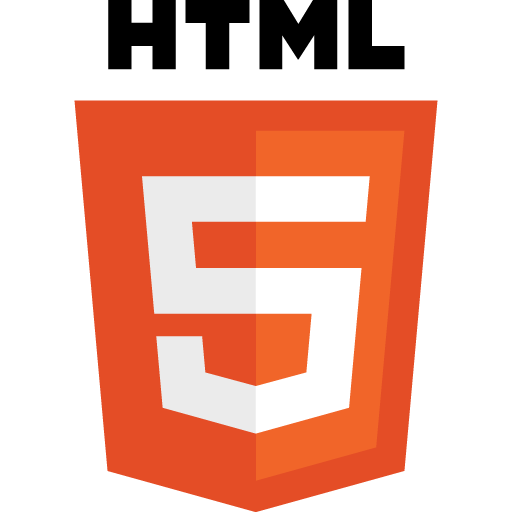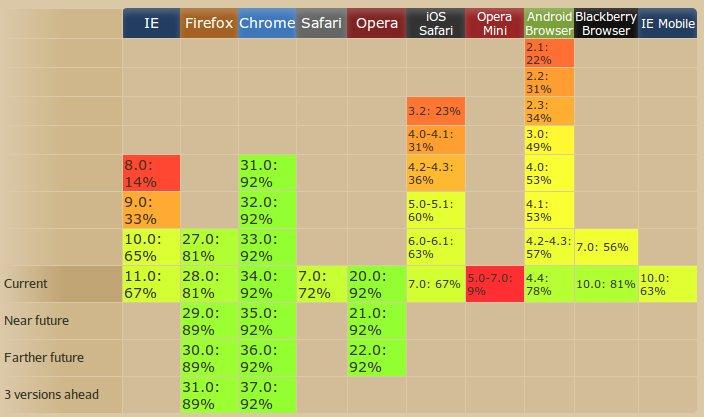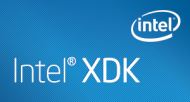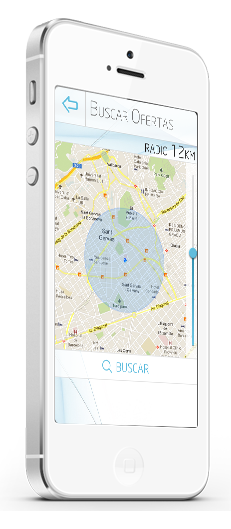HTML5 vs Native apps
second round


By @cramrov
Last update: April, 2014
marc rovira vall

36 years old, from Vic (Catalonia, Spain)
Multimedia Engineer
PM | Agile Lead | Mobile App Dev @ Medialab Barcelona
Professor @ La Salle University Barcelona Campus
agenda
HTML5
Developing Apps
First Round Winner

Second Round Winner
BuonJobs Use Case

what is html5?
Hyper Text Markup Language
An W3C/
WHATWG Standard
Previous version: HTML 4.01 (1999)
HTML5 is a family of technologies and specifications:
-
HTML: structure
-
CSS: styles
-
Javascript: interactivity
Specially designed to:
-
Replace both HTML 4, XHTML, and the HTML DOM Level 2
-
Deliver rich content without the need for additional plugins
- Be Cross-Platform
html5 - roadmap
|
|
2012 | 2013 | 2014 | 2015 | 2016 |
|---|---|---|---|---|---|
| HTML 5.0 | Candidate Rec | Call for Review | Recommendation |
|
|
| HTML 5.1 | 1st Working Draft |
|
Last Call |
Candidate Rec
|
Recommendation
|
| HTML 5.2 |
|
|
|
1st Working Draft |
|
HTML5 - New Features
-
The <canvas> element for 2D drawing
- The <video> and <audio> elements for media playback
- Support for local storage
- New content-specific elements, like <article>, <footer>, <header>, <nav>, <section>
- New form controls, like calendar, date, time, email, url, search
- CSS3 Transforms and Opacity properties are hardware accelerated
The Web platform: http://platform.html5.org/
html5 - minimum boilerplate
<!DOCTYPE html><html><head> <meta charset="UTF-8"> <title>Title of the document</title> </head> <body> <!-- content of the document --> </body></html>
html5 - browser support

Just check it out yourself:
html5 - What people say
“I think the biggest mistake that we made, as a company, is betting too much on HTML5 as opposed to native… Because it just wasn't there…” (Mark Zuckerberg, September 2012)
“Hybrid mobile apps are the future of app development” (Nick Heath in CIO Insight, February 2013)
“Mobile apps will soon be dead.” (Brian Kennish, former Google engineer, May 2011)
“Native Apps are dead, long live Native apps!”(Dan Yoder, CTO at Border Stylo in Slashdot, June 2011)
“All the problems [of mobile web] can be solved if Apple, Google, Microsoft and the rest will just stop shutting out HTML5″ (Dan Rowinski at Mozilla, November 2012)
“HTML 5 is the way almost all applications will be built, including for phones.”(Eric Schmidt, February 2011)
examples among big brands and media
developing apps for mobile devices
mobile oses
|
Current Mobile OSes
|
Programming Languages
|
|
Android (Samsung, Sony, HTC, LG,...)
iOS (Apple)
Blackberry 10 (BB)
Windows Phone 7, 8 (Microsoft, Nokia)
|
Java, Adobe AIR, WebView
Objective-C, Adobe AIR, UIWebView
C/C++/Qt, Adobe AIR, Java (Android), HTML5
C#, Visual Basic, WebBrowser
|
|
Mobile OSes coming this year (2014)
|
Programming Languages |
|
FirefoxOS (Alcatel, LG, ZTE, Huawei)
Ubuntu mobile OS (bq, Meizu)
TizenOS (Linux, Samsung, Intel, Huawei...)
SailfishOS (Jolla)
|
HTML5
QML, HTML5
HTML5
QML, Java (Android), WebView, HTML5
|
mobile programming types
Native
:|
Nonnative
/ \
Web (HTML5) Hybrid
:
)
native apps
Are specific to a given mobile platform using the development tools and language that the respective platform supports.
|
iOS |
Xcode and Objective-C
|
| Android |
Eclipse/Android Studio and Java for Android |
| Windows Phone |
Visual Studio .NET and C# |

NATIVE apps
benefit
Best Performance
Work in Offline mode
Access to the latest APIs, Releases on that Platform
IDEs, Debugging Tools, Emulators
Access to the latest APIs, Releases on that Platform
IDEs, Debugging Tools, Emulators
App Stores
NATIVE apps
Disadvantages
Slow, Hard to Develop
Hard to Publish
Creates Friction
web/html5 apps
Use standard web technologies—typically
HTML5, JavaScript and CSS
. This write-once-run-anywhere approach to mobile development creates
cross-platform
mobile applications that work on multiple devices (mostly run on
browsers
).
Web Apps vs. Web Sites
/ \
Based on User Interaction (SPAs) Based on Content
\ /
RWD

web apps
benefit
For all platforms simultaneously
Speed of Development
Very Good UI Frameworks, Tools and Libraries
Same Appearance on all Platforms
Only need 1 team, who can also do desktop site
10's of millions of web developers, easy to hire
Perfect for rapid prototyping
Easy Distribution (web server)
Frictionless
web apps
disadvantages
Performance
Native "uncanny valley"
Mobile browser limitations/differences
Limited Access to Native APIs
No App Stores
Side by Side, iOS vs HTML5
iOS
-
Sign up for a developer account (fees)
-
Buy a Mac
-
Set up XCode
-
Configure project/team settings
-
Request development certificate
-
Register Devices
-
Develop, Test, Debug
- Request production certificate
-
Upload to iTunes, submit for approval
-
Wait...
SIDE BY SIDE, IOS VS HTML5
Web (HTML5)
-
Develop, Test, Debug
-
Push to host
:)
hybrid apps
Make it possible to embed Web Apps inside a thin native container (WebView, UIWebView...), combining the best (and worst) elements of Native and Web apps.
Apps are packaged natively, so has access to native APIs.

hybrid apps
benefit
Faster, Cheaper to Develop
Small amount of native coding
Near to ‘Write Once, Run Anywhere’
Deployment on App Stores
Access the Native Layers
Can work in Offline mode
Access to 3rd Party Code
hybrid apps
disadvantages
Decreases performance
Hard to Publish
Creates Friction
cross-platform mobile frameworks
CROSS-PLATFORM packaging







app development - summary

so which one to choose?
Rule of thumb:
Games or Photos, Videos related Apps
> Native Apps
Work in real time, which doesn't need access to
the native layer and is not performance stressed
> Web Apps
Productivity Apps , Utility Apps or Enterprise Apps
> Hybrid Apps
html5 vs. native apps
first round

Reasons:
HTML5 failed as a way to develop high-quality consumer Apps
People really, really want the web to win
shows the first real glimmers of hope

.The ultimate javascript development platform.
Project description
"Famo.us is a powerful JavaScript framework designed to build rich, interactive web applications. It is the only framework that provides an open source 3D layout engine fully integrated with a 3D physics-based animation engine that can render to DOM, Canvas, or WebGL. Famo.us is currently in public beta."
demo 1 - periodic table
Open challenge to rebuild that in iOS.
There have been no takers yet.
demo 2 - facebook paper app rebuilt
demo 3 - rise app rebuilt
More demos and videos:
paradigm shift
layout engine
animation engine
gesture engine
multi-view engine
layout ENGINE
NO install
NO download
NO plugin
PURE JavaScript
SMALL footprint (require.js)
60 fps
layout ENGINE
3D
DOM
Canvas
WebGL
ANIMATION ENGINE
3D
Physics
31 curve primitives (CSS3 has 4)
Physics-based responsive design
Integrated into layout engine
Pure JavaScript
ANIMATION ENGINE
Browsers use CSS3 as their animation engine.
| Apple | Famo.us |
| 2D Physics Black box De-coupled Native only 2007 technology |
3D Physics Open Integrated Web + [UI]WebView 2014 technology |
more...
Open source under MPLv2 (Mozilla Public License v2)
Cloud services will be PAID but OPTIONAL
App complexity:
>= native iOS
> native Android
Easier to learn than native development
Efficient
AND MUCH MORE...
Integrates with third-party libraries
Cordova-based wrapper to be released soon
Low battery life impact
Famo.us can do about 80% of what native can do
Native can do about 50% of what Famo.us can do
iOS 4.3+/Android JellyBean+/Kindle/FirefoxOS
Tizen/WebOS (works but unsupported)
(Microsoft devices coming soon)
DISADVANTAGE
Tiny issues in IE
Difficult to tweak using Dev Tools
Difficult to pass on knowledge of existing project
Unsupported data visualization (coming soon)
Still has bugs
In public beta (starting April 9th, 2014)
resources
html5 vs. native apps
second round

buonjobs
use case
v2.0
>
 +
+

BuonJobs v1.0 (beta):
| Front-End | Back-End |
| JS Libs Backbone.js PG Build plugins PG Build wrapper |
Django framework PostgreSQL |
so much from me...
The End

:|
or
:
)
or
Questions?
HTML5 vs Native: Second Round
By Marc Rovira Vall
HTML5 vs Native: Second Round
- 2,747












